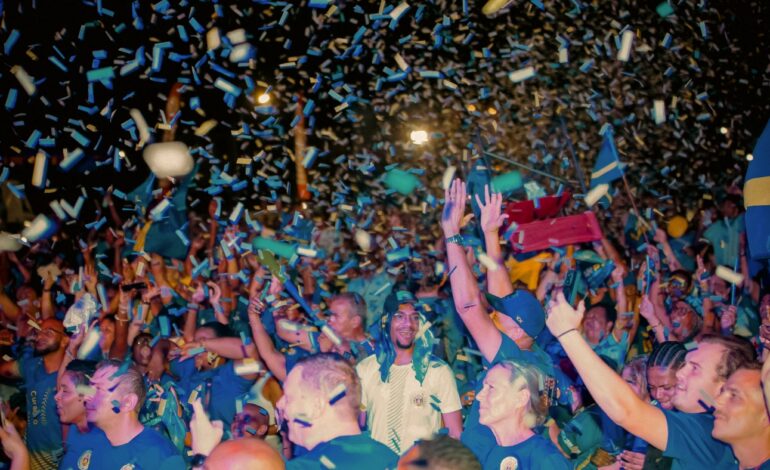Small Nations Create History at 2026 FIFA World Cup

Several small nations have made headlines by qualifying for the upcoming 2026 FIFA World Cup, showcasing the magic of football at a global level. Among these nations, Curacao and Haiti have captured the imagination of fans worldwide, as they prepare to compete on one of the sport’s biggest stages. With 42 of the 48 spots already filled, the tournament—jointly hosted by the United States, Mexico, and Canada—is shaping up to be historic.
Curacao’s Historic Qualification
Curacao, a Caribbean nation with a population of approximately 150,000, has made history by becoming the least populous country ever to qualify for the World Cup. This achievement was solidified after their recent 0-0 draw with Jamaica, surpassing Iceland as the smallest nation to compete in this prestigious tournament. The World Cup final will be held at the MetLife Stadium in New Jersey, which has a capacity of 82,500—more than half of Curacao’s population.
To compensate for its small player pool, Curacao has tapped into its diaspora, recruiting talent primarily from players born in the Netherlands. This strategy has been crucial since the country became an autonomous territory within the Kingdom of the Netherlands in 2010, following the dissolution of the Netherlands Antilles. Sports journalist Carl Worswick noted, “Curacao, like quite a few examples of smaller nations, have been good at tapping into the diaspora, ringing anyone who might have a distant relative connected to their country.”
Haiti’s Resilience Amid Crisis
Haiti has also made its mark by qualifying for the World Cup for the first time since 1974. This achievement stands out against the backdrop of a severe security and humanitarian crisis affecting the nation. Gang violence has rendered the country unsafe, limiting the players’ ability to train and compete at home. Harold Isaac, a Haitian journalist, explained, “They’ve been living the crisis in full scale… They haven’t been able to train or play in Haiti for years because of the gang violence.”
Haiti’s coach, Sebastien Migne, who has not visited the country due to security concerns, remarked on the significance of this qualification. “This really came as a kind of unimaginable boon, morally, for the country,” Isaac added, highlighting the hope that the national team has provided to its people.
Cape Verde and Other Underdogs
Cape Verde, an archipelago off the coast of West Africa, also qualified for the World Cup for the first time last month after defeating Eswatini 3-0. With a population of around 600,000, Cape Verde was the second-least populous nation to secure a spot until Curacao’s qualification. The team has similarly benefited from its diaspora, including players like center-back Roberto Lopes, who was born in Ireland to a Cape Verdean father.
Panama, with a population of approximately 4.5 million, will return to the World Cup after its debut in 2018, where it finished at the bottom of its group. The Central American nation secured its qualification by defeating El Salvador on Tuesday, aiming for redemption this time around.
The Road to the World Cup
As celebrations erupt in these nations, the road to the World Cup remains long and challenging. While the excitement of qualification is palpable, Carl Worswick cautions that the journey is not without its complications. He emphasized the need for national football associations to invest in their players and infrastructure, as the spotlight can bring financial and organizational challenges.
For countries like Haiti, the mere act of qualifying may be enough to foster hope among its citizens. “The people are suffering and they’ve been suffering for years,” Isaac noted, reflecting the importance of this achievement for national morale. For these small nations, the World Cup is not just a sporting event; it is a symbol of resilience and aspiration on the global stage.






